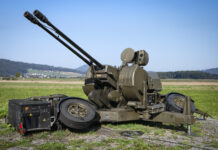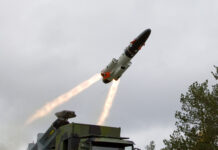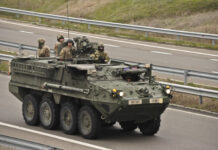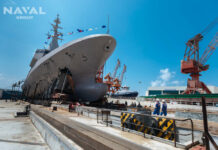The NATO-Ukraine Council met for the second time on 26 July 2023) to address the serious security situation in the Black Sea region following Russia’s unilateral termination of the Black Sea Grain Initiative brokered by the United Nations and Turkey in July 2022. NATO Secretary General Jens Stoltenberg convened the meeting following a request for crisis consultation from Ukrainian President Volodymyr Zelenskyy, with Deputy Secretary General Mircea Geoană chairing the Council.
Ukraine and its allies have strongly condemned Russia’s decision to withdraw from the Black Sea grain deal and its attempts to stop Ukraine’s agricultural exports.
Russia pulled out of the deal, which had allowed the export of Ukrainian grain crucial to many vulnerable nations and was designed to prevent famine in those countries, on 17 July 2023.
Then, in the early hours of 18 July, Russia began targeting Ukraine’s ports with missile strikes that continued into 19 July, targeting grain terminals and port infrastructure in Odesa and further down the Black Sea coast. Kyiv has said that as much as 60,000 tons of grain have already been destroyed.
The Russian Ministry of Defence then declared that from midnight on 19 July any ships heading to Ukrainian ports would be viewed as potential carriers of military cargo and could therefore be targeted.
Addressing the NATO-Ukraine Council on 26 July, Geoană stated, “Russia continues to show utter disrespect for international law and for the people worldwide who depend on Ukrainian grain. Russia is threatening civilian ships, terrorising peaceful cities, and destroying parts of the world’s cultural heritage with its brutal strikes. NATO is united. We stand in solidarity with our Black Sea allies, we will continue to protect one another, and we will continue to support Ukraine for as long as it takes.”
Russian President Vladimir Putin, however, has shown no sign that he will go back on his strategy, which increases Russia’s global leverage with weaker nations by making them more dependent on Russian grain exports.
Speaking at the Russia-Africa Economic and Humanitarian Forum in St Petersburg on 27 July, Putin said his government would “refuse to extend” the Black Sea grain deal. Instead, he said, Russia would impose “a more just system of resource distribution”. Impoverished countries in dire need of grain will have little choice but to deal with Moscow and whatever terms it exacts.
At the NATO-Ukraine Council the allies welcomed the continued efforts of Turkey to revitalise the grain deal and the efforts of other allies – including Bulgaria and Romania as well as the European Union and the United Nations – to enable the continued export of Ukrainian grain by land and sea.
The allies also made clear that they would continue to provide Ukraine with major military, economic, and humanitarian assistance.
Peter Felstead












